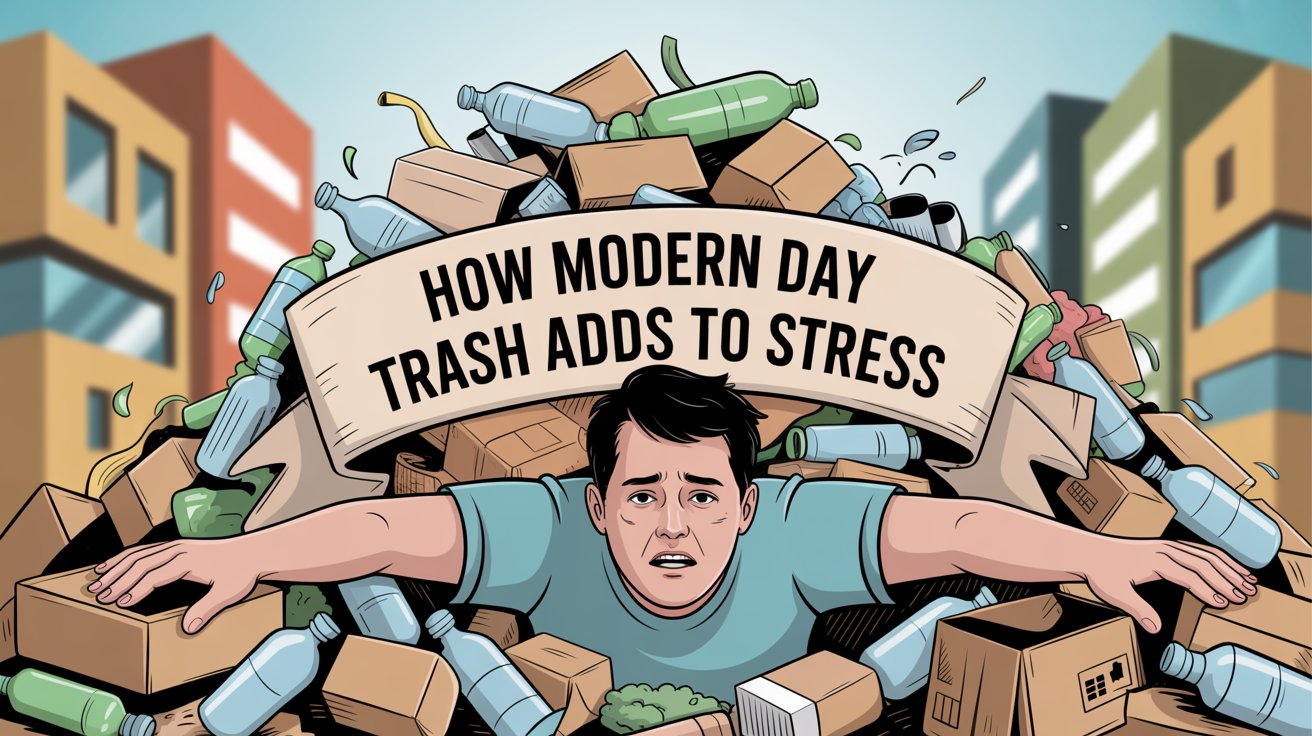
How Modern Day Trash Adds to Stress
By Dr. Harvandan Kaur Bedi
Let’s Be OKy – A Mental Health Awareness Platform
In our rapidly advancing world, we're more connected, more informed, and more convenience-driven than ever before. Yet, beneath this glossy layer of modernity lies an uncomfortable reality — modern-day trash is silently piling up, not just in our landfills, but in our minds.
The Hidden Burden of Waste
Modern trash isn't limited to banana peels or plastic wrappers. Today, trash comes in many forms: excessive packaging, digital clutter, fast fashion, throwaway culture, and constant consumerism. These things don't just harm the environment — they contribute significantly to our mental stress.
We are constantly surrounded by things we don’t need but feel compelled to buy. Social media shows us curated lifestyles, pushing us toward unnecessary consumption. Every package delivered to our doorstep, every gadget upgraded, and every outfit worn once and discarded leaves behind both physical and psychological residue.
Cluttered Spaces, Cluttered Minds
Numerous studies in psychology affirm that a cluttered environment affects our ability to focus and regulate emotions. When our homes are overflowing with stuff, our brain receives it as chaos. This visual and sensory overload can lead to anxiety, irritability, and even depression.
Moreover, digital trash — endless emails, notifications, photos, and files — constantly demands our attention and clogs our mental bandwidth. We may not see it piling up, but we feel it — in our fatigue, our distraction, and our inability to relax.
The Emotional Toll of Wastefulness
Modern trash is also a mirror of our emotional state. The act of hoarding or compulsive shopping often stems from unaddressed stress, insecurity, or loneliness. Ironically, the more we accumulate, the more overwhelmed we feel. There’s guilt over waste, frustration from clutter, and a lingering dissatisfaction that material things never seem to cure.
And in the background looms the awareness of environmental damage — climate change, overflowing landfills, and marine pollution — which fuels a new kind of anxiety: eco-anxiety, especially among younger generations.
From Awareness to Action
At Let’s Be OKy, we believe that mental health awareness must include the impact of our physical and digital environments. Being mindful of the trash we generate — and more importantly, how it makes us feel — is a key step toward emotional well-being.
Here are a few steps to consider:
Declutter consciously: Make space in your home and mind. Let go of what you don’t use. Less really is more.
Buy mindfully: Ask yourself before every purchase, “Do I really need this?”
Go on a digital detox: Unsubscribe, delete, and organize. Give your mind room to breathe.
Reconnect with simplicity: Spend time in nature, grow a plant, cook from scratch — these simple acts bring grounding.
Talk about it: Recognize how consumption and clutter are affecting your mental health. Share your concerns. You're not alone.
The Way Forward
Trash is no longer just a sanitation issue — it’s a mental health issue. By acknowledging how deeply interconnected our inner world is with the waste we create, we can begin to heal both. Small changes in our habits can create big shifts in our peace of mind.
Let’s redefine what it means to live well — not by how much we have, but by how light we feel.
Let’s choose clarity over clutter.
Let’s be conscious.
Let’s Be OKy.
tress. Let’s talk trash — for our planet and our peace
 Sign In With Google
Sign In With Google
Leave A Comment